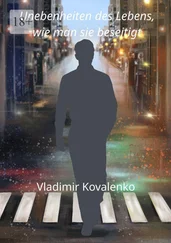Whenever she ran into somebody she didn’t like when we were out gathering firewood, she would disappear quickly into the denser brush. Others she would nod to from a distance, and some she would greet with a Guten Tag. There were just a few she would stop for a moment and chat with, but for no longer than she herself saw fit. I tried to ascertain from the people … by how attractive they were, or their age or their clothes … why she afforded some of them more friendliness and others none at all … Even afterwards I could never figure out her behavior … and I couldn’t depend on her opinions, which weren’t even interesting in the tiniest bit … Women who weren’t yet mothers were the same with everyone … a kind of perpetual source of universal kindness … But mothers, no. They were tight-lipped and stern … stupid or the kind that constantly sang … still others that carried themselves like athletes or nuns … and some whom their children obeyed at the twitch of an eyebrow or who shouted their throats out at them … Only Enrico’s mother was friendly and quiet, like the image of a real mother in paintings … All of mother’s attempts to socialize with people or hide from them went over my head … but I had to keep pace with her like a locomotive … Out in a clearing she ripped through old clothes set out on newspapers and made new ones out of them. For Clairi, for herself, for Gisela, for me. With amazing speed! She would glance curiously up at the new four-story building where Mrs. Gmeiner lived … She was a German. She would have liked to make contact with her. As soon as possible … She waited for the right opportunity, she didn’t want to be pushy, the opportunity had to come of its own. I understood this … When she had washing to do, she did it far away from the others, on the far side of the lime pit, practically in the woods. She hung the laundry up on rope stretched between tree limbs, half in the sun, half in the shade. “Bleib bei der Wäsche, daß sie sie nicht schmutzig machen oder stehlen.” fI sat under the laundry … thank God other boys also sat under their mothers’ laundry, so this wasn’t anything strange or unusual. For instance Enrico, with whom I talked a lot. He told me about the harbor in Trieste, where he’d been. About the sea and how enormous it was. About waves as high as a six-story building, about seagoing diseases. He knew his ships well. Navigating them, too. He had seen a three-master that had collided with lighthouses and sailed into port without its mainmast … Some steamship covered in frost that freighted nothing but huge ice blocks from Russia. And submarines! And fast, white torpedo boats with projectiles that sped through the water to sink submarines …
On Saturdays I scrubbed the room. Mother went to sit and sew on a bench that was near some quarried cliffs where all of us residents were allowed to go, but few ever did. Occasionally she wrote to Margrit or to her relatives in Neunkirchen. She would leave the paper on the bench and pace around with her hands in the pockets of her smock. That’s when she would be thinking about what lines she might add to her letter. First she thought about them, then she wrote them. Sometimes she even recited the lines out loud, changing the sequence of the words … Once the room was dry, Gisela and I would spread mother’s embroidered floral tablecloth on the table and set a bottle with a flower on it. To cover the opening on the stove I cut a lace napkin out of paper. Even though all of it was going to have to disappear from the table and stovetop in half an hour. But for a little while the room looked like it had been assembled from a kit.
Vati only went out to the woods now and then to get some fresh air. Usually for no more than an hour, because he had so little time. He liked for me to go with him. He wouldn’t say anything as I walked alongside him. He kept quiet. He didn’t ask any questions, either. I should have asked him some, but didn’t. Sometimes he’d exchange a few words with a worker out spreading gravel on the road or some woman working in her garden. If we did exchange any words, it wasn’t in Basel dialect, but this new, Slovene language that I was gradually learning. This changed him into some other person. What sort? More accessible, or less?… I couldn’t figure it out … The new language we spoke to each other was something peculiar. Like some unfamiliar, half-cooked, still raw food in my mouth. If we had wanted to tell each other what we thought of the unpeeled potatoes we were just then chewing on, whether they were edible or not, we could have found no better way of expressing it. I already knew a few words and what they meant. Except that they still lacked a heart and a mind … Not far from the new four-story house there was a clearing full of tree stumps. That’s where we sat. Vati had on his only good suit, a blue one, with a necktie under his celluloid collar, the only one he could afford. He had his own way of keeping it clean, white and like new … He would work two or three layers of a special wax for dying hides into its cracks … That held for at least three months … and protected it from impurities in the air, fingerprints and sweat. He used that same lotion, which had a cellulose base, to treat the linen collars of his two other shirts … In the clearing he took out a pocket knife with a thick red wooden handle that he had bought at the train station … this was the most Slovenian thing about him. He used it to trim his nails, which grew fast, yellow and curved like the windows of old taxi cabs … The rage that possessed him when he was talking with mother or Clairi subsided … Outwardly he was quiet and said very little … He walked slowly, with his hands clasped behind his back, far away from the houses, way out in front of me … a bit off to the side, uncertainly, as though he were stepping over shards or avoiding bugs or puddles on the road. His feet would recoil and his ankles would twist, causing his soles to twitch right and left before he set a foot back down on the ground … I had to call to him and only then would he stop and wait for me to catch up with him. He said nothing. I would barely catch up with him before he turned around and went on. Was he a kind man or what was actually the story with him? I wanted something to happen. “Laufen wir!” gI shouted. I took him by the hand and raced off down the road with him. But after a few meters he would lag and say, “Laß mich los! Laß mich los,” hand sit down, all out of breath … His lungs worked like a rotten bellows and a dry froth appeared on his lips … He was completely gray, as old as a grandpa. He was fifty-five years old, as I reckoned, when I arrived … and mother almost fifty … That was a Methuselamian age … somewhere way up ahead in life, or way at the back … He didn’t like me to be too energetic … If I started jumping over a stick that I kept setting higher and higher, he turned and looked away. In the past he would at least pay attention when I showed him how agile I was, but not anymore. I wanted to learn something from him … whatever it was … that would be essential to me in life. I didn’t know what to ask him about that he would know how to answer. Yes, he knew a few things about Hitler, Stalin, Mussolini, Chamberlain, and Roosevelt … But of course he knew nothing about military affairs … armored vehicles, bombers, and fighter planes … submarines … various kinds of rifles and automatic pistols … what their trajectory was and how to handle them … All of that was important for war! So that’s why I described the specifications of various kinds of weaponry and waited for some spark of curiosity from him. It didn’t much interest him … It wasn’t possible to convert him. He was different from others. In every way. Nobody else had such a tiny, fragile frame. He was handsome … Handsomer than in his photograph with mother where they were sitting in wicker chairs, holding onto little, fat-headed three-year-old Clairi between them … or than he was in the yellowed group portrait at the end of his tailoring course in Trieste, where he stood lined up with other young tailors in an auditorium, surrounded by old, stout master tradesmen sitting at little tables with tape measures and protractors. Thin, with sideburns and a thick mustache … A handsome, elderly face with a beard … it was amazing how much he resembled the patriarchs in church paintings … His light green eyes behind glasses that he repaired using yarn would dart this way and that, big and expectant if anything darted past, or they would suddenly become cleverly focused when he fixed them on something that interested him, for instance a fur. I would look at him, because, quite simply, he was always silent … Sometimes he would exercise a bit … He would hop extending his arms up and down … which looked funny, like some sort of running in place. I would quietly check around to see if there were people nearby who might laugh at him if they caught him doing that.
Читать дальше












